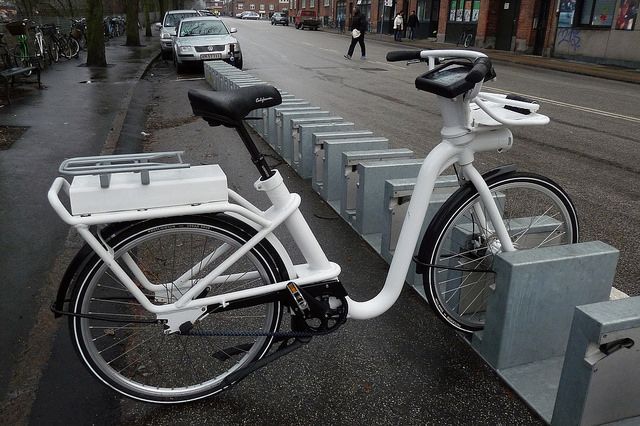The Danish bicycle rental company GoBike, which provides the white electric- driven bicycles for Copenhagen’s city bike program, has gone bankrupt after attempts to find new investors fell through, reports Berlingske Business.
According to GoBike chair Nils Erik Nielsen, there was no interest from potential investors in saving the company once its main partner, the City and Commuter Bike Foundation, backed out of ongoing negotiations.
On March 1, the financially-stricken GoBike went into receivership, but the City and Commuter Bike Foundation refused to take over the company because of its dire financial situation.
“Our task is to ensure the bikes work and that the different requirements for repairs and so on are considered,” Nikolaj Bøgh, the chair of the City and Commuter Bike Foundation, told Berlingske Business.
“We believe it is not possible with the presented financial [report].”
READ MORE: Copenhagen’s bikes breaking new records
Available in the future
Nevertheless, the bicycle-sharing program will go on unaffected for the foreseen future as the foundation will, on behalf of DSB and Copenhagen and Frederiksberg municipalities, support the operational costs of the program with 80 million kroner over the next eight years.
According to Berlingske, Copenhagen Municipality knew from the start that GoBike had financial problems and thus required bank guarantees for its investments.
After two unsuccessful years, the GoBike program finally took off last year when users rented the electric driven-bikes for more than 700,000 trips.
The most recent figures suggest this year might be even more successful as five times more trips were booked during the month of February compared to the same period last year.
READ MORE: Commuters and city bike customers both smacked by price hikes














